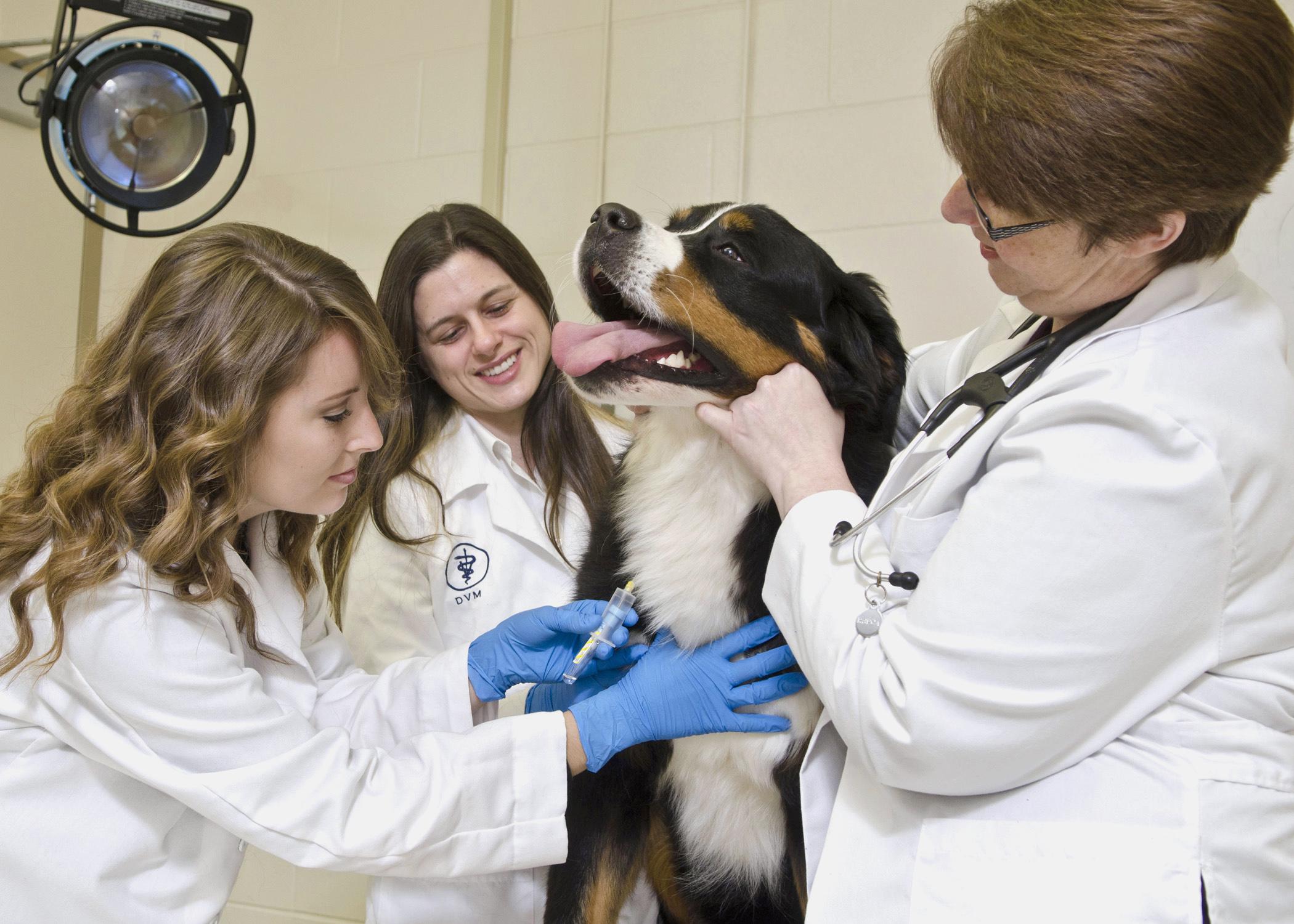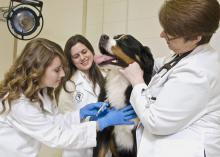Information Possibly Outdated
The information presented on this page was originally released on June 6, 2013. It may not be outdated, but please search our site for more current information. If you plan to quote or reference this information in a publication, please check with the Extension specialist or author before proceeding.
MSU researchers study role of platelets in canine cancer
By Karen Templeton
MSU College of Veterinary Medicine
MISSISSIPPI STATE – A group of veterinarians at Mississippi State University’s College of Veterinary Medicine is working to better understand cancer in dogs, work that will likely also advance knowledge of human cancer.
MSU scientists said there is little difference between cancerous tumors found in dogs and humans, and the opportunity to help both human and canine patients is growing.
“The answers may be in blood platelets. We have a lot to gain by looking at platelets and how they influence cancer and healing,” said Dr. Camillo Bulla, assistant professor in the college’s Department of Pathobiology and Population Medicine. “The platelet is very small, but it gives us a large picture. We hope to be able to find a tumor much sooner by taking a series of blood samples to look at platelet contents.”
Cancers need the creation of new blood vessels, or angiogenesis, to survive and grow. Tumors can actually create new blood vessels as pathways to travel and spread.
Bulla and his colleagues Dr. Kari Lunsford and Dr. John Thomason have formed the Comparative Angiogenesis Laboratory at MSU’s College of Veterinary Medicine to better understand this process and treat canine patients.
This laboratory currently focuses on patients undergoing cancer treatment. If treatments are successful and the cancer goes into remission, the veterinary team monitors the patient for a relapse of the disease by looking periodically at its platelets.
“This type of monitoring is less invasive than taking biopsies,” said Lunsford, an assistant professor in the Clinical Sciences Department. “It can also be an earlier indicator that the cancer is returning. As soon as we see those molecules that induce blood vessel formation, we can treat the cancer.”
Lunsford said monitoring platelet activity will allow veterinarians to detect and treat dogs with recurring cancer earlier, giving them a greater chance of beating the disease.
“We started out looking at how platelets influence disease,” said Thomason, an assistant professor in the Clinical Sciences Department. “We are now also researching how dogs with cancer respond to drugs with anti-angiogenic effects.”
Humans have been taking the drugs being researched for years, such as aspirin. Thomason said the anti-angiogenic effects of aspirin might work well in dogs.
“We are learning more about why aspirin works for some cancer patients and not for others,” he said.
For years, cancer drug research has been conducted in rodents before being tested for effectiveness in humans. Much of the time, this expensive and lengthy method of drug development does not result in drugs that work in humans, Lunsford said.
“What is often found is that these drugs fail when they are put to human medical use,” she said. “Mice with cancer do not make good models for understanding the disease and efficacy of drugs in humans. Dogs get the same kind of cancers humans do, and the disease is naturally occurring. These are real patients with cancer, and we want to treat them.”
Lunsford said that looking at cancer drugs in dogs gives researchers a clearer picture of how those drugs will work with humans, which could save drug companies millions of dollars and get life-saving medications to cancer patients faster.
Plus, people whose dogs have cancer can get their pets treated.
“The dogs get safe treatment while we look at their platelets to get a bigger-picture look at how cancers behave in their bodies and how medications work,” she said.
Veterinarians are on the front lines of discovering and understanding the connections between human and animal health.
“We share our space, our lives with dogs,” Lunsford said. “Dogs live in our houses, serve in our military, provide care to people with physical limitations, and some even sleep in our beds. We truly share a lifestyle with them. It makes sense that we get the same types of diseases.”
Contact: Karen Templeton, (662) 325-1100




